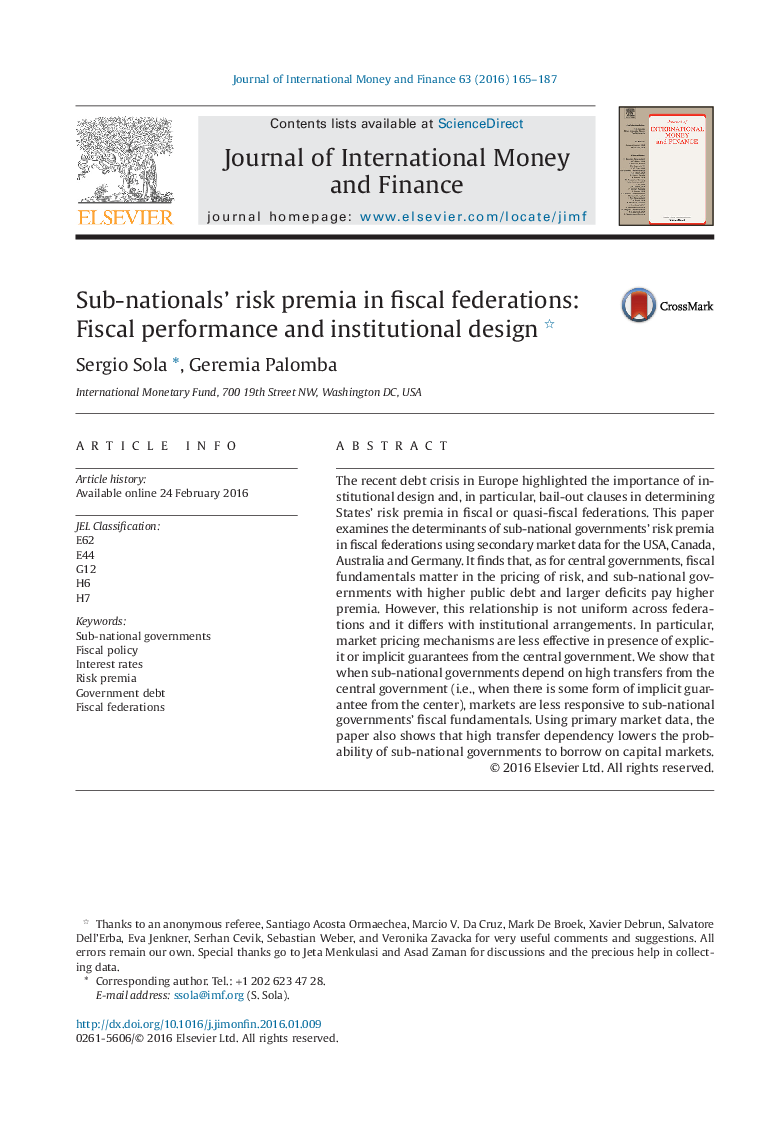| Article ID | Journal | Published Year | Pages | File Type |
|---|---|---|---|---|
| 963781 | Journal of International Money and Finance | 2016 | 23 Pages |
•Institutional arrangements affect the way markets price risk premia of sub-national governments (SNGs).•Secondary market data show that high public debt and deficit increase risk premia for SNGs.•Market discipline is less effective when SNGs receive high transfers from the central government.•Transfer dependency, however, does not induce SNGs to run higher deficits.•Transfer dependency lowers the probability that SNGs would borrow on capital markets.
The recent debt crisis in Europe highlighted the importance of institutional design and, in particular, bail-out clauses in determining States' risk premia in fiscal or quasi-fiscal federations. This paper examines the determinants of sub-national governments' risk premia in fiscal federations using secondary market data for the USA, Canada, Australia and Germany. It finds that, as for central governments, fiscal fundamentals matter in the pricing of risk, and sub-national governments with higher public debt and larger deficits pay higher premia. However, this relationship is not uniform across federations and it differs with institutional arrangements. In particular, market pricing mechanisms are less effective in presence of explicit or implicit guarantees from the central government. We show that when sub-national governments depend on high transfers from the central government (i.e., when there is some form of implicit guarantee from the center), markets are less responsive to sub-national governments' fiscal fundamentals. Using primary market data, the paper also shows that high transfer dependency lowers the probability of sub-national governments to borrow on capital markets.
